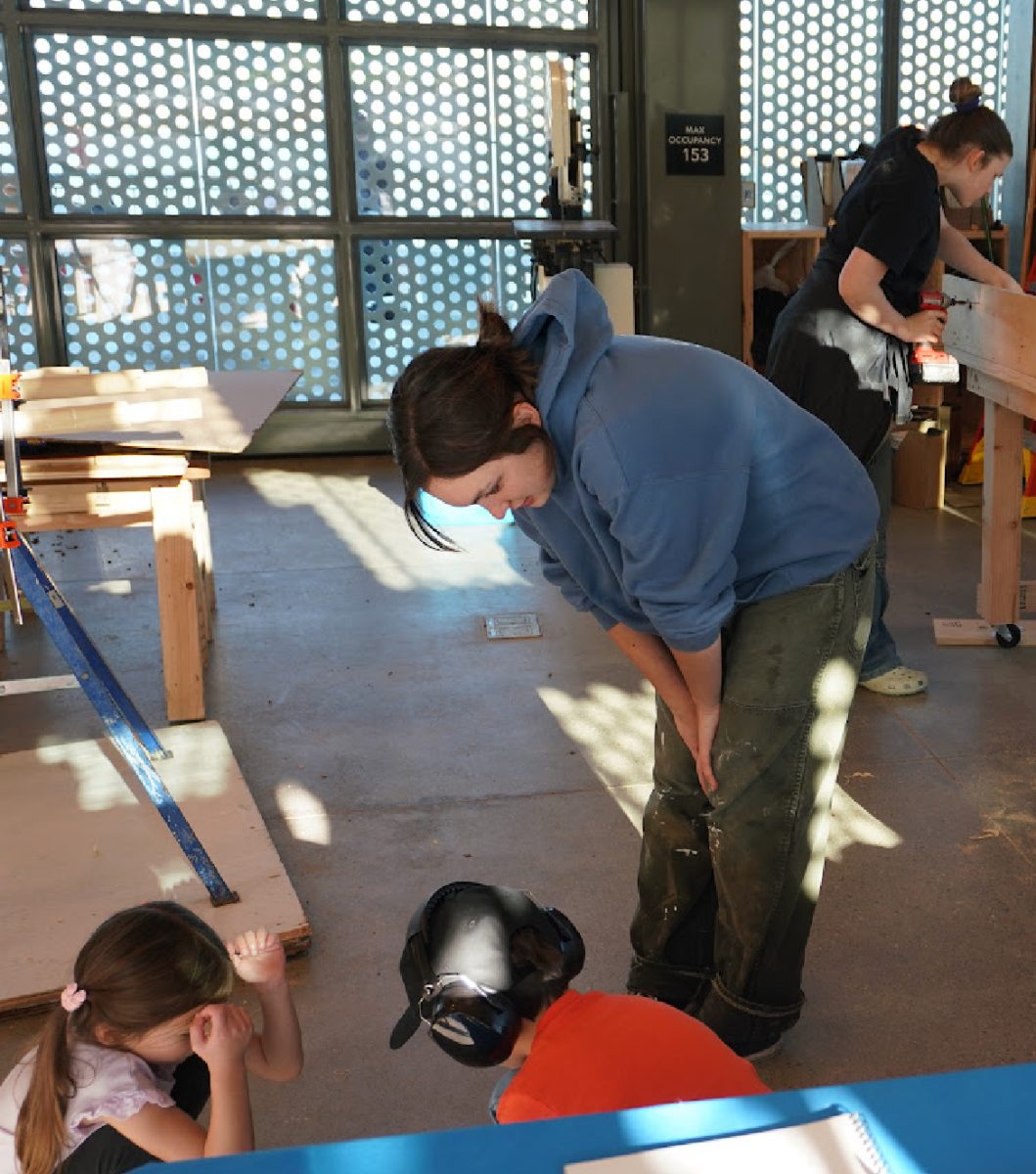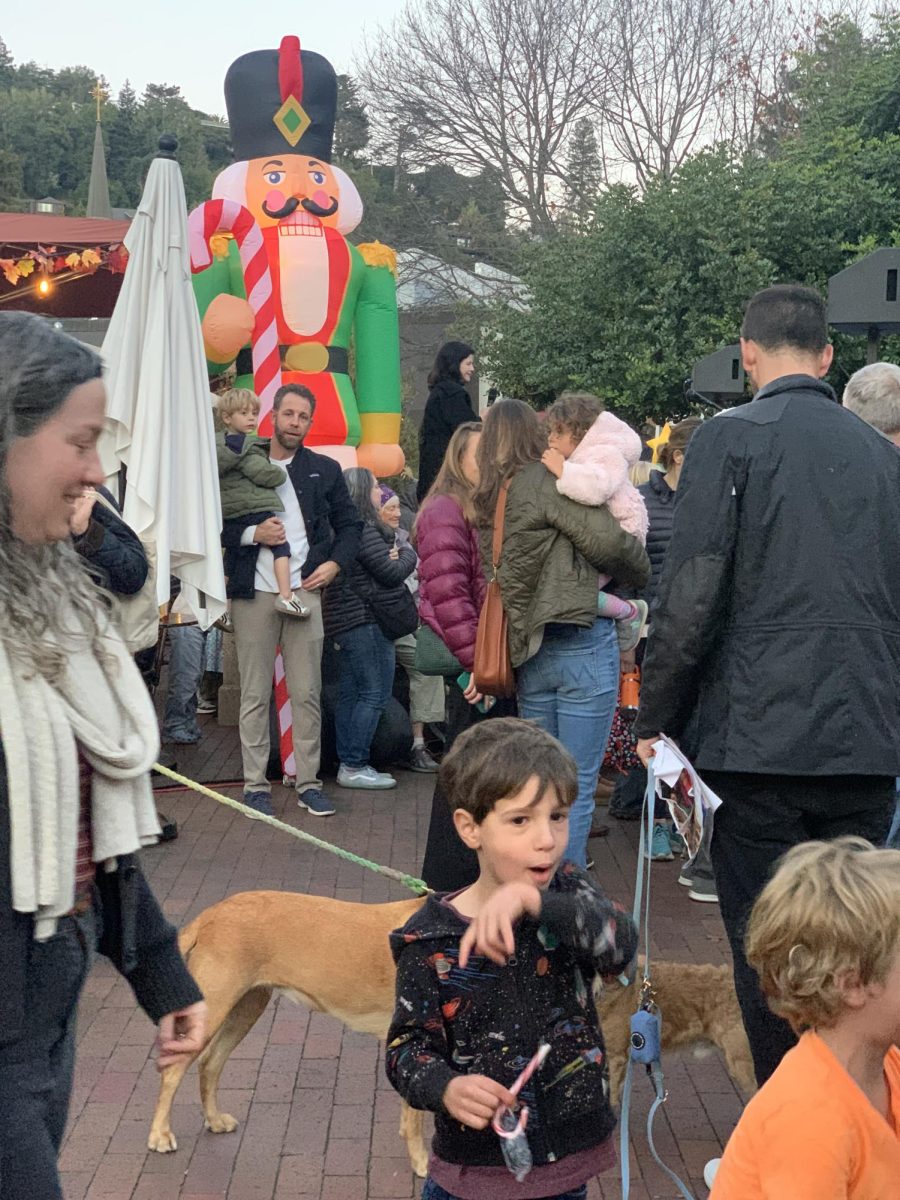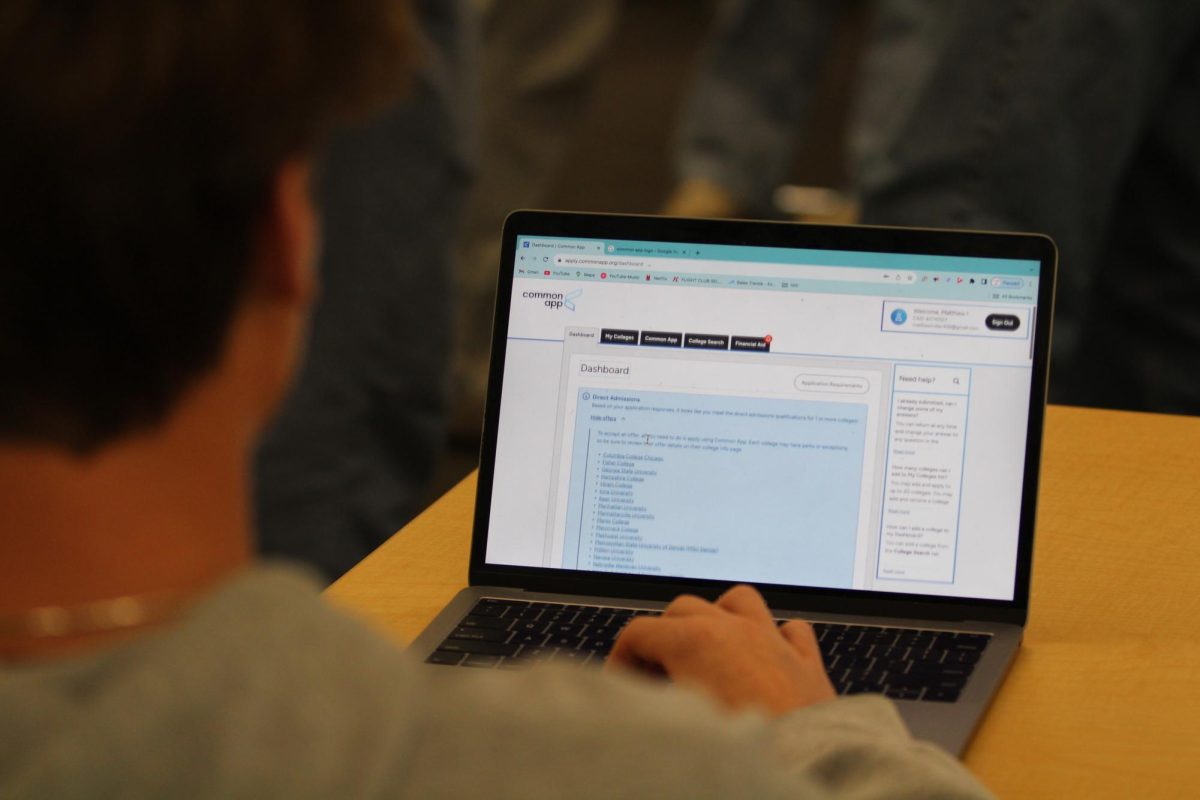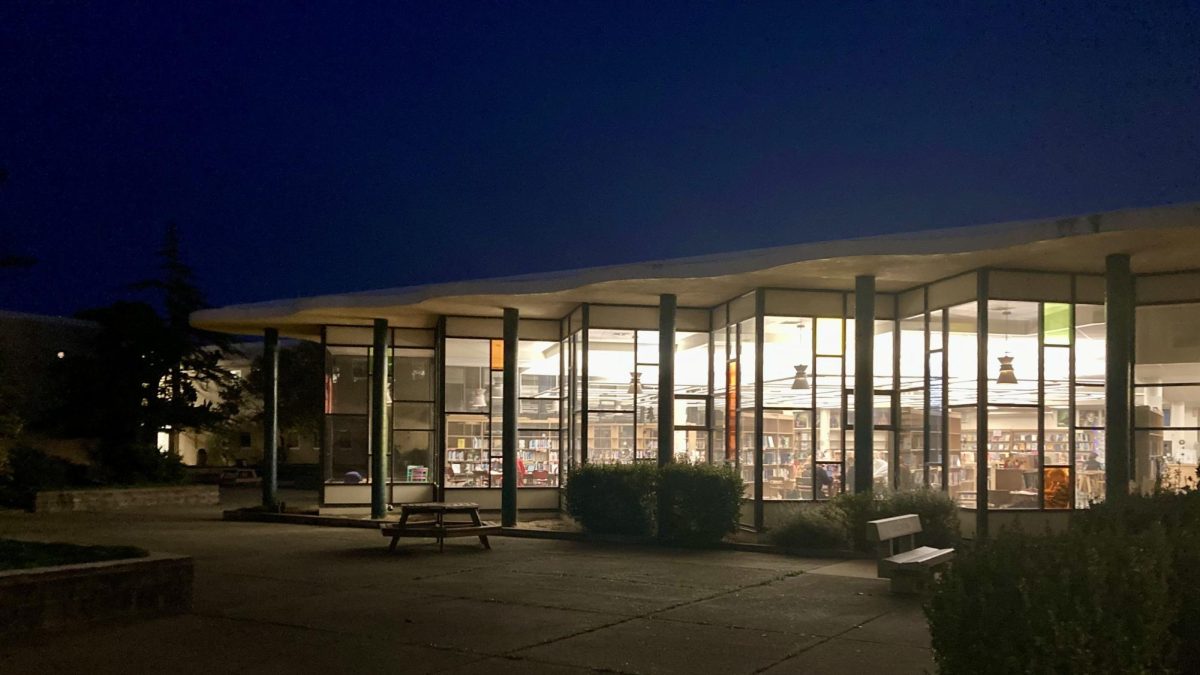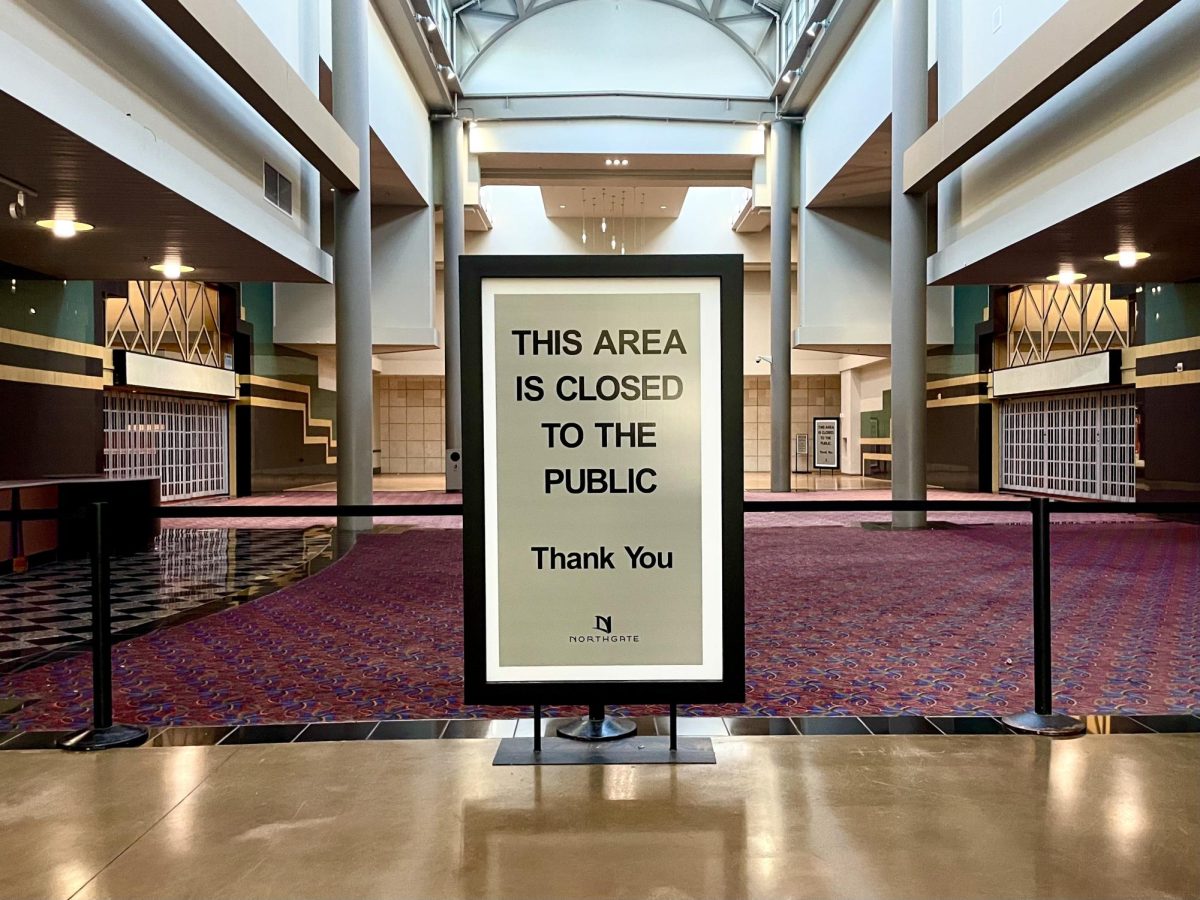Over 1,500 Berkeley High students walked out of class and through the streets of Berkeley on Thursday, Nov. 5 to protest a racist message that appeared on a computer in the school library the day before.

The culprit, a 15-year-old Berkeley High student, confessed on Thursday to posting the racial threats on a school library computer, according to ABC-7 News.
Though officials have not yet disclosed the student’s name or personal information, the student was interrogated and allegedly admitted to his actions only after a technological forensic analysis was performed on the computer, according to ABC-7 News.
The message included a plethora of racial slurs and threats, including, “KKK FOREVER PUBLIC LYNCHING DECEMBER 9th 2015.”
The incident triggered outrage, fear, and anger among students of many ethnicities within the Berkeley High School (BHS) community, according to BHS senior Andrea Levinson, a participant in the protest.
“I was angry because my life as a black person at Berkeley High had been explicitly threatened by somebody who claimed to have sympathized with a terrorist group that has spent their entire existence trying to end black people in America,” said Alecia Harger, co-president of the Black Student Union at Berkeley High School.
The incident sparked a cooperative reaction from the student body, many of whom carried signs throughout the rally that read, “Black Lives Matter” and “Stand Up!”
“It’s terrifying to think that someone within our community is affiliated with those actions,” said Levinson. “The scary part is that everyone thinks of Berkeley as this amazing, liberal place where everyone’s really accepting and that it’s totally diverse. People don’t realize that stuff like this happens and that racism is still alive and running.”
The rally and protests were led by the school’s Black Student Union, a group limited to black students. The goal of the student group is to create a cohesive black community within BHS and to encourage black students to make their voices heard, according to Harger.
“When we came to school that morning, we were really shaken by what we had seen the night before, and we were angry and had so much pent-up emotion, especially because the administration had taken nearly 10 hours to officially alert the student body,” Harger said. “We had so much anger built up inside our community, and we needed an outlet.”
The racist message was discovered on Wednesday, Nov. 4 at about 12:30 p.m., and students were informed of the incident in an email sent by Principal Sam Pasarow on Wednesday evening at about 9 p.m.
“We are working hard to create a positive and inclusive school culture and we recognize the deep pain and rage that hate crimes such as this one bring to our students of color, as well as the damaging effects on our entire community,” Pasarow wrote in his email.
According to Damani McNeil, a student leader and organizer for the Black Student Union, it was crucial for the administration to take action after the incident.
“The night I found out, I just decided that I was going to do something. At that point, I knew that I was going to go to school the next day, go to the principal’s office and demand accountability,” McNeil said. “I wasn’t going to wait. I was definitely going to be very civil, but also very uncompromising. I was essentially not going to leave until I got the answer that I wanted.”
Thursday morning, McNeil and a few other classmates went to the principal’s office, waiting for a response. According to McNeil, Pasarow’s response was not satisfactory, leading him to walk throughout the school encouraging students to join him so that they could pressure the administration for answers.

Racism in Berkeley runs much deeper than just this particular incident, according to Harger. Within the last two years, a racial slur was slipped into the yearbook, a noose was hung from a tree on campus, and black effigies were found hanging on the UC Berkeley campus.
“I was not that shocked or shaken, which was the most terrifying part, because I was not really surprised that something like this would pop up at our school,” Harger said.
Harger noted the presence of racism in Berkeley, the home of the Free Speech movement, and a place many consider to be progressive and modernized.
The rally and protest consisted of an open forum for students of color to speak out, as well as a place where black students could speak about their emotions or state of mind.
“What I really wanted to tell the student body was that this is a time for black students to let their voices be heard,” Harger said. “This incident hurt, and it brought up a lot of pain that’s not just related to this one occurrence but to years of being black in a public school system that doesn’t always support you the way it should.”
According to Harger, one of the main goals of the protest was to bring the issue of systemic racism in public schools to the forefront of the country’s attention.
“One thing we obviously accomplished was that we brought visibility to this issue. I’ve been talking to reporters all weekend, and we’ve woken up the community and the state, and arguably parts of the nation to this issue.”
McNeil expressed a similar sentiment, stressing the importance of perseverance.
“I was making it clear that I wanted this act to be considered not only a hate crime, but also an act of domestic terrorism, and emphasize that the fight did not end today. Going to one protest does not solve it—you have to keep chipping away,” McNeil said. “I wanted to make it vitally important that in these battles for civil rights, it’s very important you fight to win. You have to fight with the aim of ending the struggle.”
Principal Sam Pasarow and Berkeley Unified School District Public Information Officer Mark Coplan were unavailable for comment.

